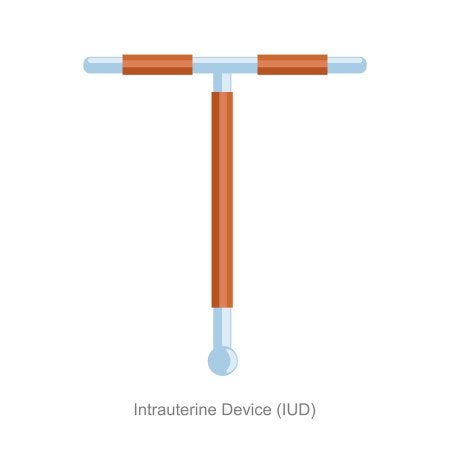-
Caring for Yourself After an Abortion
After an abortion, it is important to get adequate rest and follow-up care to ensure a healthy, fast recovery. Your gynecologist will provide you with extensive information about caring for yourself after a pregnancy termination . This information will also help.

Plan to Rest
Ideally, you should allow yourself a few days to simply rest after your abortion. During this time, you may experience heavy to light bleeding, as well as nausea, cramps, and breast tenderness, which can last for a few days to a few weeks. It’s common for symptoms, especially bleeding, to start and stop a few times before ending for good. You should avoid strenuous activity for the first few days after your procedure, and avoid sexual intercourse, tampon use, or douching to five days. If it’s not possible to take time off of work and school, listen to your body and take things as easy as you can.
Attend Follow-Up Appointments
You will likely need a follow-up visit with your gynecologist to ensure that the abortion was successful and that you are recovering without complications. These appointments are important to your health, so be sure to attend any follow-ups recommended by your gynecologist. If you experience any signs of complications before or active your follow-up, call your gynecologist right away.
Pay Attention to Your Emotions
Women often feel a range of emotions after an abortion. Some women feel relief, others feel sad, and others have mixed emotions. All of these feelings are completely normal. There is no right way to react to having an abortion. If you are struggling to cope with your emotions in the aftermath, your gynecologist can recommend resources that will help.
At Washington Surgi-Clinic, we can help you make the right decisions about your abortion and provide the care you need before and after the procedure. To make an appointment for an abortion in Washington, D.C. , call us at (202) 659-9403. Our compassionate care is always confidential.
-
Here’s How Gynecologists Cope with Cramps
During your period, your uterine muscles contract in order to shed the lining of the uterus. This causes the pain of menstrual cramps. Some women barely notice them, while others feel incapacitated by them. Since you shouldn’t have to suffer through the pain, and because severe menstrual pain may indicate a medical problem, you should make an appointment with your gynecologist. The doctor may recommend hormonal birth control, if you aren’t already using it. Hormonal birth control pills lessen cramping by thinning the uterine lining, which means there’s less of it to shed.

If hormonal birth control doesn’t do enough for you, or you’d rather avoid it, try heat therapy. Gynecologists recommend keeping a heating pad nearby during that time of the month. Additionally, avoid salty foods, since dehydration can worsen the cramping. You could also try taking an over-the-counter nonsteroidal anti-inflammatory drug (NSAID) shortly before you usually get cramps.
Washington Surgi-Clinic is a trusted provider of gynecology services for women in Washington, D.C. and the surrounding areas. You can request an appointment by calling (202) 659-9403.
-
Hear Why April Chose Pregnancy Termination
Women often find that the decision to have an abortion is a gut-wrenching one, especially when they desperately wanted to become mothers. When you watch the accompanying video, you’ll hear about April’s experience with abortion. She and her husband went through many cycles of fertility treatments to become pregnant.
Initially, their son tested negative for common birth defects. At 18 weeks, an anatomy scan revealed a lethal diagnosis of skeletal dysplasia. It would prevent him from living longer than a few minutes. Had April been forced to carry her baby to term, she would have experienced the agony of holding her son as he died, knowing that he was in pain. April decided to share her story because she believes women should have the right to control their own reproduction and because she wants to break down the stereotypes about pregnancy termination.
Washington Surgi-Clinic is a warm, welcoming place where women can receive thoughtful and personalized guidance . Call (202) 659-9403 to request a consult for pregnancy termination in Washington, D.C.
-
Non-Hormonal Birth Control Options
Most birth control methods rely on hormones to trigger changes in the body that inhibit the fertilization of an egg or the implantation of a fertilized egg. But some women have health issues or concerns that discourage them from choosing hormonal birth control. Talk to your gynecologist about your options. He or she can recommend some appropriate choices, based on your health history, preferences, and lifestyle.
Condom
Condoms are the barrier method of choice for many couples, and gynecologists recommend them because they protect individuals from sexually transmitted diseases (STDs) as well as unintended pregnancies. Even when couples do rely on hormonal birth control, doctors recommend using a condom too. The downside is that condoms aren’t 100% effective. Tiny rips in the latex can allow sperm transfer. Condoms can also interfere with sexual spontaneity, and if condoms aren’t readily available, couples may engage in unprotected sex.

Copper IUD
Another non-hormonal option for women is the copper intrauterine device (IUD). This is a tiny device that your gynecologist can insert into your uterus. It can stay there for up to 10 years, at which time you may choose to replace it or use a different birth control method. The copper IUD isn’t right for every woman, but for many, it’s a convenient, safe choice that doesn’t raise the risk of hormone-related side effects, like blood clots. Less than 1% of women who use this particular IUD will conceive within the first year of use , according to The Mayo Clinic. If this occurs, there is a high risk of ectopic pregnancy. However, the overall risk of ectopic pregnancy with the copper IUD is less compared to the risk for women who don’t use birth control.
Diaphragm
The diaphragm is another barrier method. A gynecologist must prescribe and fit it, and it should be used with spermicide. This silicone cup needs to remain in place for six hours after sex, but it cannot be left in place longer than 24 hours. Some women report vaginal irritation with it. The diaphragm doesn’t protect couples from STDs, and it has a relatively high failure rate.
The gynecologists at Washington Surgi-Clinic guide women in making informed decisions regarding birth control methods. Call (202) 659-9403 to schedule an appointment. We also offer STD testing and morning-after pills in Washington, D.C.
-
Nutrition and Food Safety Facts for Recently Diagnosed HIV Patients
Gynecologists recommend routine HIV testing for women and men, as early detection facilitates early treatment. Living with HIV isn’t easy, but thanks to medical advances, life with this disease can be better and longer than ever. Taking your medications as prescribed is just one component of your treatment plan. Your immune system needs you to follow a healthy diet, and to take precautions to prevent foodborne illnesses.

Nutrition-Related Issues
Talk to your doctor about any problems you’re having with your meal plan. Several challenges may affect HIV patients, including related infections that inhibit normal eating and swallowing. Metabolic changes can trigger weight gain or loss. Additionally, HIV medicine may cause side effects like nausea, vomiting, and diarrhea. All of these issues can make it more difficult for you to eat well, but your doctor can help you. Don’t delay scheduling an appointment if you experience these complications, especially if you begin to unintentionally lose weight.
Important Nutrients
Patients with HIV need the same nutrients that everyone else does for good health. However, since you may have problems eating enough due to HIV-related complications, it’s even more important that the food you do eat is nutrient-dense. Consider talking with a registered dietician to make sure your meal plan includes sufficient amounts of:
- Protein
- Healthy fats
- Vitamins and minerals
- Complex carbohydrates
Remember to drink plenty of water throughout each day.
Food Safety Precautions
HIV patients are highly susceptible to contracting infections, since HIV attacks the immune system. In other words, you’re more vulnerable to foodborne illnesses than the average person without HIV. Protect yourself by taking the following precautions.
- Never eat raw or undercooked foods (including raw cookie dough and homemade mayonnaise)
- Avoid unpasteurized dairy products
- Cook all meat, poultry, and seafood to its safe internal temperature
- Avoid raw sprouts
- Refrigerate perishable foods promptly
- Wash hands before and after preparing food
- Keep raw foods separate from cooked foods
- Use separate cutting boards for raw meat products and all other ingredients
Remember to follow basic precautions when dining out and socializing. Don’t be shy about asking whether meat is well-done or if the milk is pasteurized. When traveling, consume bottled water.
You can receive confidential HIV testing in Washington, D.C. if there’s a possibility that you’re at risk of this infection. Washington Surgi-Clinic is committed to maintaining the strict confidentiality of each of our valued patients. Call (202) 659-9403.
-
What Not to Do Before Your Pap Test
Gynecologists recommend getting a pap test on a routine basis to screen for changes of the cervix that may indicate cancer or pre-cancerous abnormalities. Your doctor will let you know how often you should schedule these wellness appointments. Try to avoid scheduling your pap test for the week of your period.

There is little preparation required, but your gynecologist will need you to avoid sexual intercourse for two days prior to the exam. You should also avoid using any vaginal products for the same time period. These include medications, douches, and creams. Avoid spray, powder, lubrication, and suppository products as well. If you do get your period before your exam, use sanitary pads instead of tampons for 48 hours prior. When you arrive at the clinic, don’t forget to visit the ladies’ room. A full bladder will make the exam more uncomfortable.
Women are invited to call Washington Surgi-Clinic at (202) 659-9403 to request an appointment. Pap tests are one of the many gynecology services we provide in Washington, D.C.
-
Here’s What Bill Nye Says About Pregnancy Termination
Few issues are quite as polarizing as a woman’s reproductive healthcare rights. In this featured video, renowned scientist Bill Nye urges viewers to learn about the science of reproduction in order to develop better informed views. In his opinion, abortion is a personal decision to be made by a woman with the guidance of her doctor.
Bill Nye also addresses the commonly held belief that life begins at fertilization. Actually, countless fertilized eggs are naturally passed out of women’s bodies, without ever attaching to the uterine lining.
Washington Surgi-Clinic is a respectful, compassionate place for women to receive reproductive healthcare services . Call (202) 659-9403 to schedule an appointment with a gynecologist if you’re thinking about getting an abortion near Washington, D.C.
-
IUD Insertion: What’s It Really Like?
Intrauterine devices (IUDs) are very small, slender medical implants that can be placed into the uterus to prevent unwanted pregnancies. The IUD is a birth control method that is becoming more commonly requested at gynecology clinics, but it isn’t necessarily the best choice for every woman. Talk to your gynecologist about your health history and preferences before making an informed decision. If you do choose to get an IUD, it will be non-surgically inserted by your gynecologist during a normal office visit.

What to Know Before You Go
Your gynecologist may give you some advice on preparing for the insertion . Know that it can be an uncomfortable process, and some women do experience pain. However, it only takes a few minutes to insert the IUD. To minimize your discomfort, you can take an over-the-counter pain reliever before your appointment. Your doctor might prescribe a medication intended to dilate the cervix, which can help make the procedure more comfortable and easier for you. Bring a sanitary pad to your appointment, as some bleeding can occur.
What to Expect During the Insertion
After you change into a gown, you’ll be asked to lie on the exam table and place your feet on the stirrups—exactly as though you’d be having a cervical cancer screening. A speculum is inserted, and then a special device is used to insert the IUD into your vagina, through the cervix, and into the uterus.
What to Do Afterward
It’s common to experience cramping, which can be fairly intense for some women. Although some women feel fine driving themselves home afterward, you might want to bring a friend with you, just in case. Rest at home with a heating pad for the remainder of the day. It’s normal to have some light bleeding or spotting for a few days afterward, so have a few extra sanitary pads on hand.
The IUD is one of many birth control methods available in Washington, D.C. At Washington Surgi-Clinic, our gynecologists take the time to thoroughly counsel each of our patients about their reproductive healthcare options. Request an appointment by calling our friendly office staff at (202) 659-9403.
-
What Happens If I’m Late Scheduling a Birth Control Shot?
One of the many choices women have for birth control is Depo-Provera, or the birth control shot. The shot is extremely effective and can be ideal for women who don’t wish to take a pill every day to prevent pregnancy. One factor that influences the effectiveness of Depo-Provera is how often you get the shot and if you stick to the schedule recommended by your gynecologist.

The impacts of a late shot depend on when your last shot was. Ideally, women should get a shot every 10 to 12 weeks. However, if you get your shot within 15 weeks of the previous one, you should still be protected. If you get your shot more than 15 weeks after your previous one, you will need to use an alternative form of birth control for one week after getting the shot. If you have intercourse more than 15 weeks after your last shot without protection, then you may wish to discuss emergency contraception with your gynecologist.
To schedule an appointment for Depo-Provera or to discuss birth control methods in Washington, D.C., make an appointment with Washington Surgi-Clinic today. To learn more about our women’s health services, including STD testing and pregnancy termination , call (202) 659-9403.
-
In Her Shoes: Common Reasons for Choosing Abortion
Every person has the right to make their own healthcare decisions, and no woman should feel pressured to explain her decision to seek an abortion . However, many women find the experience of speaking out about reproductive rights to be an empowering way to correct the many misconceptions and stigmas about this issue. The decision to terminate a pregnancy is one that is experienced a little differently by every woman, but there are some common motivating factors.

Terminating a Wanted Pregnancy
One of the many myths about abortion is that it’s always performed to terminate an unwanted pregnancy. In fact, many women who make this decision do truly want to be mothers, and many of them intentionally became pregnant. But life is unpredictable, and some prenatal tests performed around 18-to 20 weeks may reveal significant defects that would not allow the child to live after the birth. Unsurprisingly, women typically feel emotionally unable to carry a child to term, give birth, and watch the baby suffer before its death. It’s also not unheard of for a woman to undergo pregnancy termination because she would otherwise face the possibility of carrying a dead fetus.
Facing Significant Changes in Circumstances
Some women who have looked forward to becoming mothers decide that, due to circumstances beyond their control, they are no longer able to do so. At least one woman chose to terminate a pregnancy because she and her husband discovered that he had cancer. They decided that it wasn’t possible for her to carry the pregnancy to term, go into labor, and care for a new baby while also caring for a very sick family member. As any cancer caregiver can attest to, it’s a full-time job in itself.
Terminating an Unwanted Pregnancy
No informed woman views abortion as a birth control method. But birth control isn’t infallible, and sometimes women decide to terminate the resulting pregnancy when birth control fails. Rape is another common reason for choosing abortion. Sexual assault is far more common than many men realize, and no woman should be forced to carry a rapist’s child to term against her will.
Regardless of your reason for seeking an abortion, you deserve to receive exceptional care from courteous, compassionate providers who respect your decision. At Washington Surgi-Clinic , we maintain the utmost standards of patient confidentiality. Call (202) 659-9403 or visit us online to learn about our safe chemical and surgical pregnancy termination methods available in Washington, D.C.
Recent Posts
Popular Posts
categories
- Uncategorized
- STD
- Washington Surgi-Clinic
- Abortion
- Pregnancy
- Pap Smears
- Birth Control Options
- HPV
- Gynecologist
- Pregnancy Test
- Abortion Safety
- IUD
- Pregnancy Termination
- First Trimister
- Cervical Cancer
- Morning After Pill
- Birth Control Pills
- Chlamydia
- Birth Control Shot
- Gonorrhea
- STD Testing
- Birth Control Implant
- Pelvic Pain
- Birth Control Patch
- HIV
- HPV Vaccine
